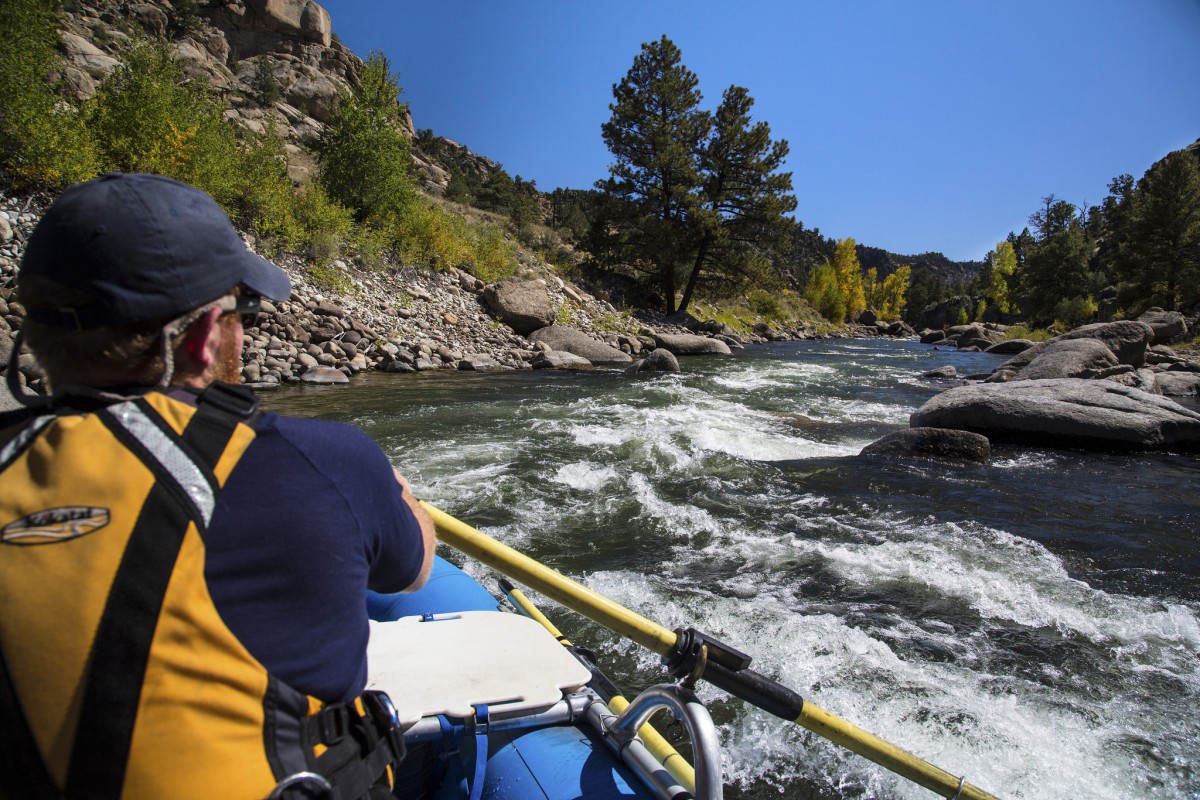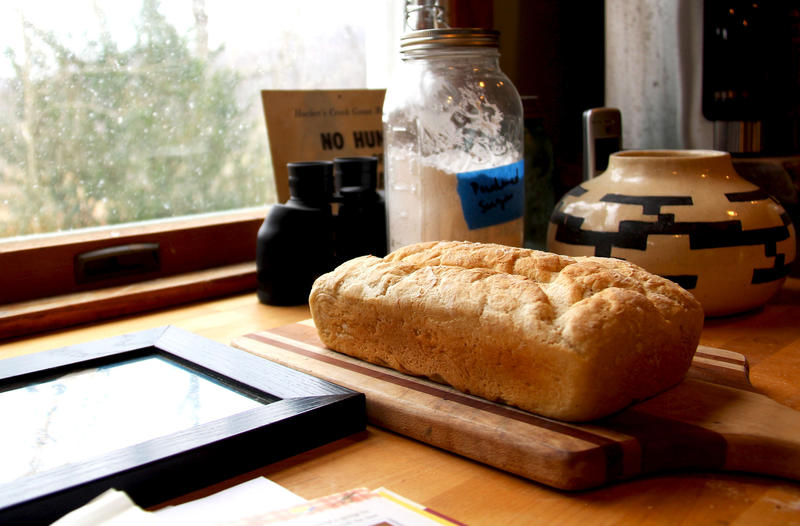In West Virginia, there’s been an outcry. “Delegate Porterfield doesn’t represent us!”
From any number of circles — the West Virginia Republican Party, progressives, liberals, the Black community, the faithful, LGBTQ+ leaders — there is an outcry. It comes after first-time member of the West Virginia House of Delegates Eric Porterfield openly parroted bigoted language in a public meeting and, in a later interview, compared LGBTQ+ groups, organizations and individuals that speak for the legal protection of these citizens to the KKK.
This seems illogical. The KKK should never be compared to anything but the KKK.
“Delegate Porterfield doesn’t represent us!” they cry.
I dare to argue, he does.
Porterfield represents a West Virginia that believes the LGBTQ+ community should not be included in a protective class. He represents an ideology that is shared, dare I say celebrated, by many, many West Virginians. He did earn his seat by popular vote, after all.
He represents an exposed hatred that is not quarantined to a political party, sexual orientation, religion or place, but is a learned human condition that afflicts many West Virginians who are desperate to find a feeling of superiority and specialness.
The state’s population is 97 percent white; therefore, any political group, sex, church or any community of people here will be predominantly white — that is unless that group is specific to race. The incredibly large racial majority lends itself to leadership and membership that consciously or unconsciously is influenced by generational and institutional whiteness, whiteness that often calls on white supremacist values, even if they aren’t the cross burning type.
The KKK is a terrorist group anchored in white fear labeled as white supremacy. This is, for the most part, universally understood. What is not often understood, though, is that white fear or white supremacy is not exclusive to the terrorist-hate group.
Theoretically one could be LGBTQ+ and still belong to the KKK. White Supremacy exists in West Virginia. It exists in the places you assume it would, as Porterfield has showed us, but white supremacy exists in any number of “oppressed” and moral communities, too: West Virginia’s feminist community, West Virginia’s faith community. In West Virginia’s LGBTQ+ community, white supremacy exists.
I know this. My family knows this.
My daughter is beautiful inside and out and is making history as West Virginia’s first Transgender Black drag-teen-Queen. But she no longer wants to live in West Virginia. This place will not benefit from the diversity of her ideas and thoughts because of so many afflicted with inferiority known as white supremacy, and not from where you might think.
My daughter is transgender and that, she says, opened the door to hateful, white supremacist comments from people who claim membership in the LGBTQ+ community in her home state.
She wrote on social media:
“Something that boggles my mind is how often racism in the LGBTQ+ community is looked over so often. People automatically assume that since a person is LGBTQ+ they can’t be racist because they know the struggle of being a social minority and outcast. But in all actuality, it’s a really big problem that’s not really being fixed. When it comes to white people in the community, they are so quick to outcast and ostracize any POC. They look down on us as if we are not equalis, but lesser than. It’s truly disgusting to think that someone who knows the struggle of being looked down upon would be so quick to do the same.”
When my daughter told me what was happening to her, I asked her if she wanted me to reach out to others to see if we could do something. She agreed.
I reached out to “feminists,” they said call the LGBTQ+ folks. The LGBTQ+ folks said call the church. The church said call the Black group. The Black group called me back, but nothing much has happened.
I’m learning that even in the LGBTQ+ community there is a division. I’m learning that there is a great need in West Virginia’s own LGBTQ+ community for transgender tolerance as much as I am learning about my daughter’s direct experiences of white supremacy in a so-called “safe space” of the LGBTQ+ community. What I have to teach my daughter, though, is that community that attacked her with their racist words is not the LGBTQ+ community but white fear known as white supremacy that exists within it. Journalist Keith Boykin said, “The dirty little secret about the homosexual population is that white gay people are just as racist as white straight people.”
In my 40+ years in West Virginia, I am aware of this white identity fear known as white supremacy. From my travels, I have experienced much more than this place, though, and I don’t think West Virginia is much different than the rest of America. Yet, with a 3 percent minority — largely Black — population, we are somewhat at a loss for effective mass political outcry for issues that impact the Black community. Yet, they are present. This legislative session in West Virginia, two bills that would directly benefit the Black community have been overlooked by community outcry. I question why?
There are many who have for years been on the front lines of fighting for and on behalf of the Black community — through legislation, education and keeping community. We are dependent on white allyship, and that often comes by way of liberal or progressive whites. But they are not exempt.
Malcolm X said:
“The white liberal differs from the white conservative only in one way: the liberal is more deceitful than the conservative. The liberal is more hypocritical than the conservative. Both want power, but the white liberal is the one who has perfected the art of posing as the Negro’s friend and benefactor; and by winning the friendship, allegiance, and support of the Negro, the white liberal is able to use the Negro as a pawn or tool in this political ‘football game’ that is constantly raging between the white liberals and white conservatives.
Politically the American Negro is nothing but a football and the white liberals control this mentally dead ball through tricks of tokenism: false promises of integration and civil rights. In this profitable game of deceiving and exploiting the political politician of the American Negro, those white liberals have the willing cooperation of the Negro civil rights leaders. These ‘leaders’ sell out our people for just a few crumbs of token recognition and token gains. These ‘leaders’ are satisfied with token victories and token progress because they themselves are nothing but token leaders.”
In West Virginia, white fear of inferiority expressed in the terms of white supremacy is found in well meaning, progressive circles. It cries “WOMEN IN POLITICS” but refuses to celebrate a Black female Republican. It has bumper stickers that say, “ALL KINDS WELCOME” but with an * AGREES WITH ME POLITICALLY.
None of this is discussed as “white supremacy” because it is not as brash as a the Porterfield/Trump archetype — it doesn’t wear a MAGA hat and is made up of often Democratic women or LGBTQ+.
Unfortunately, I have come to expect expressions of white fear, expressed, in circles of political allies. As Malcolm X said, “….the white liberal has perfected the art of posing as the Negro’s friend and benefactor; and by winning the friendship, allegiance, and support of the Negro, the white liberal is able to use the Negro as a pawn or tool.”
I prefer my “white supremacists” out and in the open. But I’ve also learned the consequences when you speak out against white supremacy in liberal and progressive circles — my chiding has come from both white and Black people.
I’ll never forget the West Virginia organization who has an anti-racism platform, yet at a fundraiser served appetizers off a black man’s body in a jungle tent. The half-naked man was the plate, he was surrounded by white women picking sushi of his chest. I was criticized for pointing out the atrocity in this event planning that occurred because, of course this error was the fault and responsibility of someone else.
And now my child is experiencing the same rebukes. She’s thin, about 90 pounds, and it’s heartbreaking to imagine her standing up for herself against white men who are the size of Delegate Porterfield.
But my beautiful girl said it best, “They look down on us as if we are not equals but lesser than. It’s truly disgusting that someone who knows the struggle of being looked down upon would be so quick to do the same.”
Yes, my precious child, it is disgusting — and the pain is perhaps deeper when it comes from those that too identify as “marginalized and oppressed,” be they white women who claim a feminist identity or white gay men, or white Christians, or just poor hard working white people who know the economic struggle; the struggle that is most of West Virginia.
The common denominator is white and whiteness and deep insecurities. Laws do not create tolerance, acceptance or self-esteem.
In fact, some of the very protections we create can do the opposite. Just a few years ago, a white poet from West Virginia was asked to leave a black poets retreat in South Carolina because they said “her whiteness threatened our safe space.” I was responsible for the white poets presence and from then on, I saw how the rules of “safe spaces” could be applied. This came to mind when I considered what would happen if my daughter’s 6-foot-2-inch Black father spoke up for her to gay white men full of insecurity.
I don’t believe in safe spaces. I don’t raise my daughter to expect them.
I pray that West Virginia Delegate Danielle Walker, who spoke so passionately on the House floor against Porterfield’s comments and shared that her son is gay, will never have to defend him on the floor from the same racism that my daughter has experienced in West Virginia’s LGBTQ+ community.
I’m proud that my daughter is something like her mother and seeks to stay educated and active in politics. Yes, she has now left West Virginia — like many of our young people — taking her queerness, blackness and talent with her, looking for opportunity, yes, but in part because she could not find acceptance by a few rotten apples in the LGBTQ+ community.
In her first week in New York City, my daughter stood with LGBTQ+ People of Color and New York’s Governor for the signing of the state’s newly-passed equal protection law. She feels more herself there, in a community with more POC.
I can’t imagine what it was like for my daughter: black, transgender and 7th generation West ‘by god.’ All I know is she a lucky girl! She sees the world for what it is and embodies the spirit of “Mountaineers Are Always Free.” She knows her history — from Blair Mountain to the birthplace of Black History Month — founded by Carter G. Woodson, who developed Black History Week in Cabell County. She knows her American history of struggle and excellence and she knows she’s part of it all.
My girl is gonna be fine.
She tells me, “Everyone in West Virginia is in drag, that’s why they wear so much camo.”
Crystal Good is a poet/performer finally in recovery from many karmic lessons, based in Charleston, West Virginia. Her most recent published work is featured in, “Appalachian Reckoning: A Region Responds to Hillbilly Elegy.”



